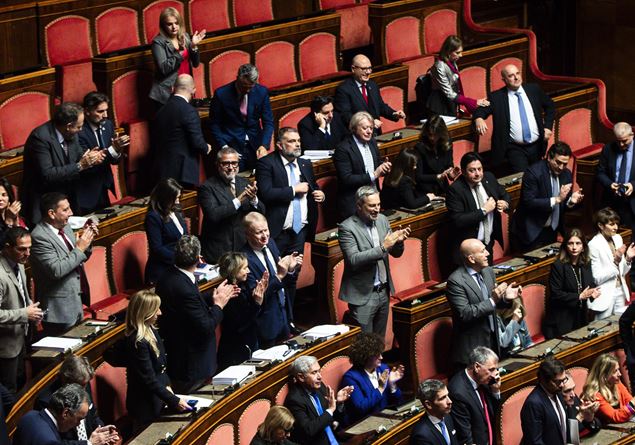The national spokesperson of the Third Sector Forum Vanessa Pallucchi
«On social challenges, the financial law approved by the government did not give the answers we expected. There is dialogue, mutual listening as well, but then when decisions have to be made the world of solidarity is not taken into consideration as it should be.”
It is the analysis of Vanessa Pallucchi, national spokesperson of Third Sector Forum on the budget law for next year just approved by Parliament. «There are at least three priorities», he explains, «the first is to raise the 5 per thousand ceiling, then we must avoid the application of VAT, which will come into effect on 1 January 2026, and the refinancing of the Fund for the fight to educational poverty. There have been some positive responses such as, for example, the increase in resources allocated to the universal civil service.”
Pallucchi, let’s start from 5 per thousand.
«For years now, citizens have given more than the 525 million expected. Now there is an overrun of around 28 million which has not been recognized in this budget despite the government having made a commitment to this. Raising the ceiling means first of all respecting the will of citizens when they choose Third Sector entities as recipients of the 5 per thousand. We are also concerned about article 112 which extends the limitations on the expenses of entities that receive public funding to non-profit businesses. It means putting a ceiling on solidarity because it will not be possible to purchase goods and services such as healthcare tools and necessary means of transport for an amount higher than the average value incurred for the same purposes in the financial years of the previous three years. It seems absurd to us to limit the investments of those who, like the State, contribute to the general interest.”
The risk that from 1 January VAT would be passed on to the Third Sector, equating social and mutual activities with normal commercial exchanges, was averted in the Cesarini area.
«There has been a half response which postpones the application of VAT until 1 January 2026. Our request was to be excluded immediately because there are numerous associations that risk closing, suffocated in the chaos of tax regimes and bureaucratic obligations. It is a sword of Damocles that hangs over the entire sector and which we hope will be removed as soon as possible.”
In general, what is your opinion on the finance company?
«Structural interventions are missing. In such a difficult moment, with the growth of poverty and inequalities, we would have expected greater attention to welfare and real support policies for those realities, such as the Third Sector bodies, which fight hardship, build social cohesion, create a healthy economy, fight poverty. Inequalities weigh significantly on the country’s development, we need to lend a hand to those who fight them and make sure to cushion their impact on civil society.”
The Fund to combat educational poverty has not been refinanced.
«This is a negative signal also because it was regulated by a very virtuous mechanism which allowed us to intervene, in synergy with other bodies and institutions, in various critical situations such as support for the most fragile communities in the internal earthquake-stricken areas, in the suburbs urban, in the reception of Afghan children or in the support of orphans of feminicide”.
What are the most urgent issues to put on the agenda for the next few months?
«The Third Sector reform lacks all the rules on taxation which is decisive for entities and associations. The other danger to be avoided is to ensure that the cuts made to local authorities do not have a serious impact on services to people, especially in the health and social sector. This is the appeal that the ANCI also made.”








